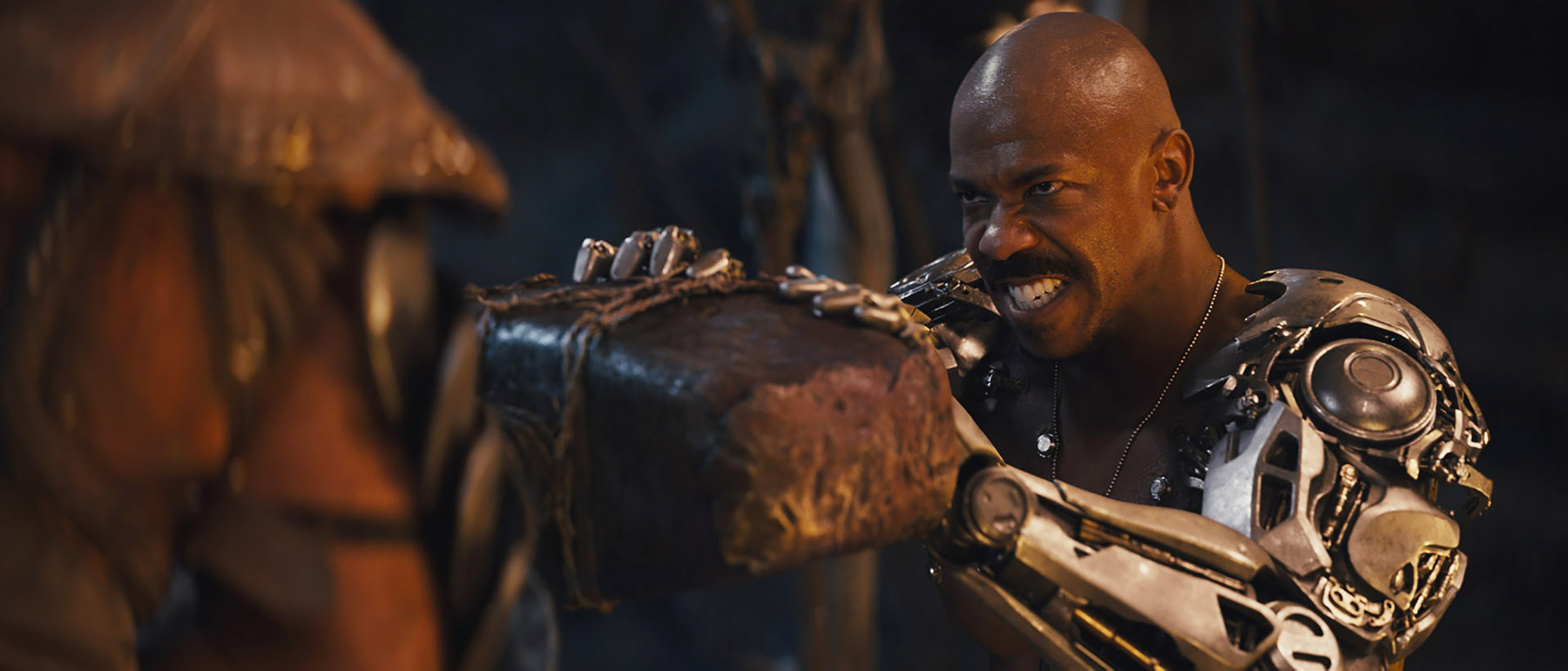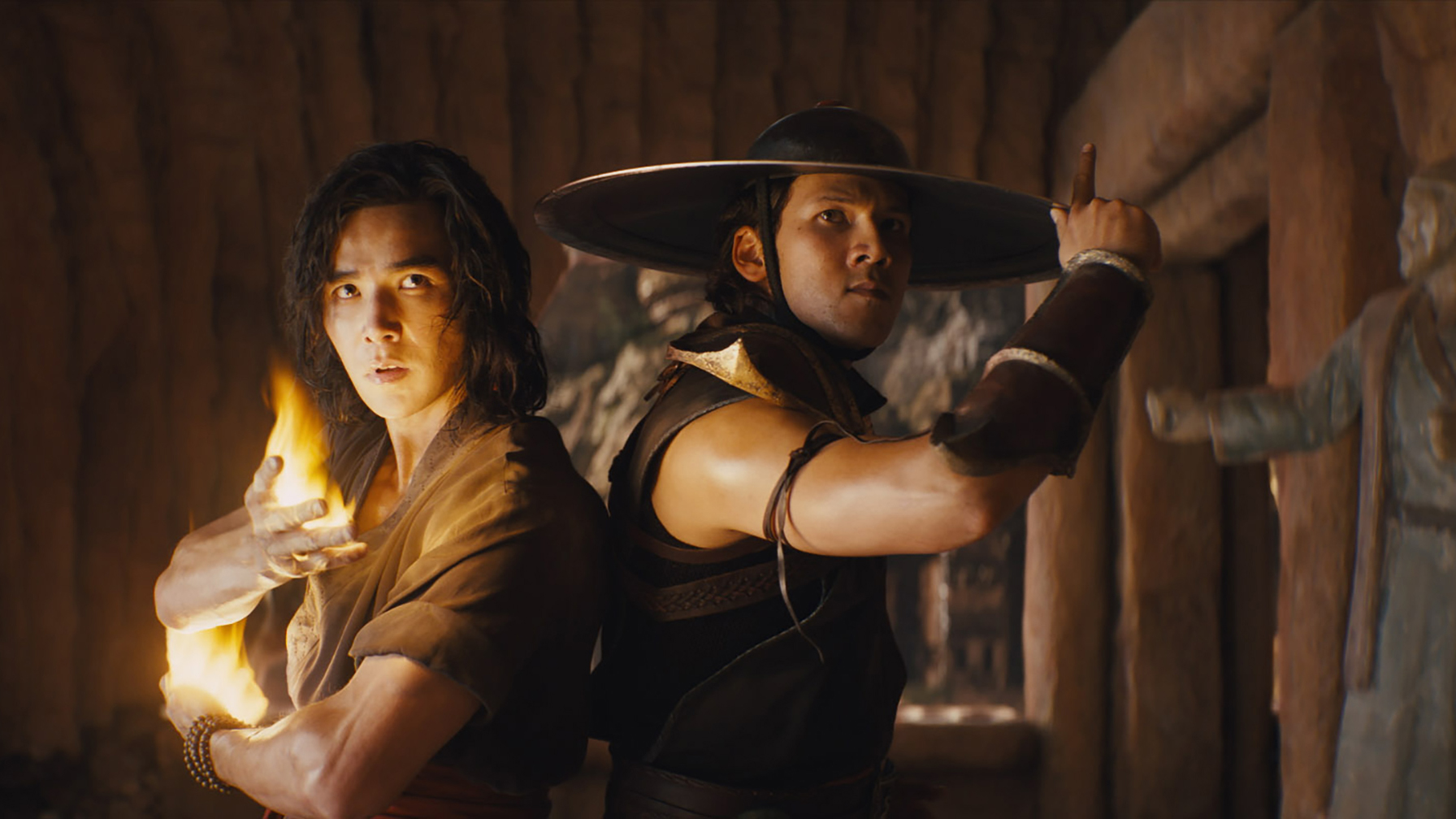Greg Russo ’03 hadn’t been to the movies since the COVID-19 pandemic began. But on April 23, he ventured out to an IMAX theater near his home in Los Angeles to watch Mortal Kombat, an action-packed adaptation of the classic video game, which was debuting that night. “It was a great experience,” Russo said, “hearing all those claps and cheers.” The crowd’s enthusiasm meant a lot to Russo. He had written the screenplay for the film, which shattered post-pandemic box office records that weekend. Mortal Kombat was an overnight success, but Greg Russo’s success as a screenwriter took a little longer—and he says that journey began at Vassar.
Russo became a film buff when he took a course at his high school in Cherry Hill, NJ, and when he visited the Vassar campus and learned about the flexible curriculum and the facilities in the Film Department, he was sold. “During my tour, I said to myself, ‘Wow, this place has all the equipment NYU does.’ And the curriculum was more open, so I could take all the courses I wanted,” he said.

Mortal Kombat scriptwriter Greg Russo ’03 on set.
Russo said his Vassar experience was all he had hoped it would be. “I double-majored in English and Film, my two passions, and Sarah Kozloff [Professor Emerita of Film] and) Ken Robinson [the late Professor Emeritus of Film] were inspirational,” he said. “Sarah let me write my final paper on Invasion of the Body Snatchers. She’s a very cool woman. And Ken was funny and entertaining, but he never let anything slide. He was old school. I loved every moment of my Vassar education.”
Russo couldn’t find work in the film industry when he graduated in 2003, so he spent the next four years working for a headhunting firm in New Jersey, an experience he called “lucrative but soul-sucking.” When his then-girlfriend (now spouse), Tricia Gonnella ‘03, was accepted in a graduate program in film at the University of Southern California in 2007, they packed up their car and moved to Los Angeles.
Russo had saved some money, so he decided to start writing scripts. “I wrote every day—I treated it like a job,” he said. “I was willing to put in the work.”
Russo wrote about a dozen scripts before he sold one, “a little Hitchcock-type thriller” about people trapped in an elevator. “I sold it for $22,000 and got a little blurb in the Hollywood Reporter,” he said. “I was so proud I sent it to my mom, but the script didn’t get made [into a movie].”
Russo continued to write scripts and he sold a few more over the next several years. But Mortal Kombat was the first that was actually made into a film. “I just kept writing—movies, TV pilots, whatever,” he said, “and getting one made only took 14 years.”

Mehcad Brooks as “Jax” in Mortal Kombat.
Russo had one key advantage over most other screenwriters in ensuring that Mortal Kombat would appeal to fans of the video game: He’s an accomplished gamer himself. “I have like 1.5 million Gamerscore on Xbox, which puts me in the top 50 in the world, and top 15 in America,” he said in an interview with the entertainment website Polygon. When Mortal Kombat began production, Russo told the producers, “Please just give me a chance. Let me take a shot. I know this stuff.”
Russo added, however, that he knew making a movie just for gamers wouldn’t work either, so he shaped the plot and characters to ensure the script would appeal to a broader audience. Seeing the reaction in the theater that night confirmed he had succeeded.
Mortal Kombat’s success has opened other doors for Russo. He’s working with producers on a new movie in a series based on the video game Saints Row, and he’s written a script based on the classic game, Space Invaders.
Russo says he’s excited about these new projects, but he also knows he’s in one of the most competitive industries in the world. “Nothing gets easier about this job,” he said. “You just get more accustomed to the stress. There’s no substitute for hard work, and thinking about your work only gets you so far. The proof is in the pages. I’ll still always need that discipline of sitting down at the computer every day and going to work.”
